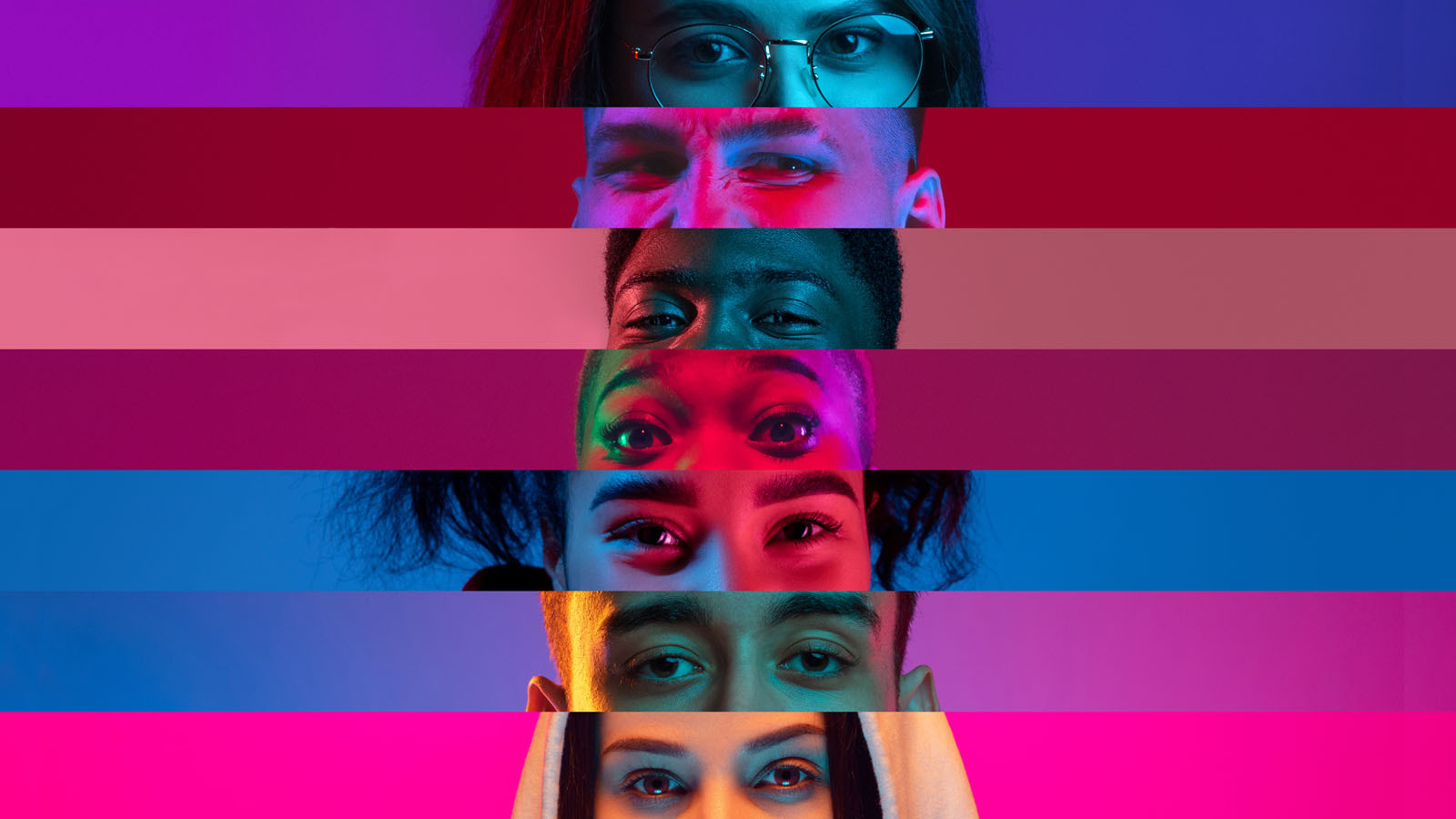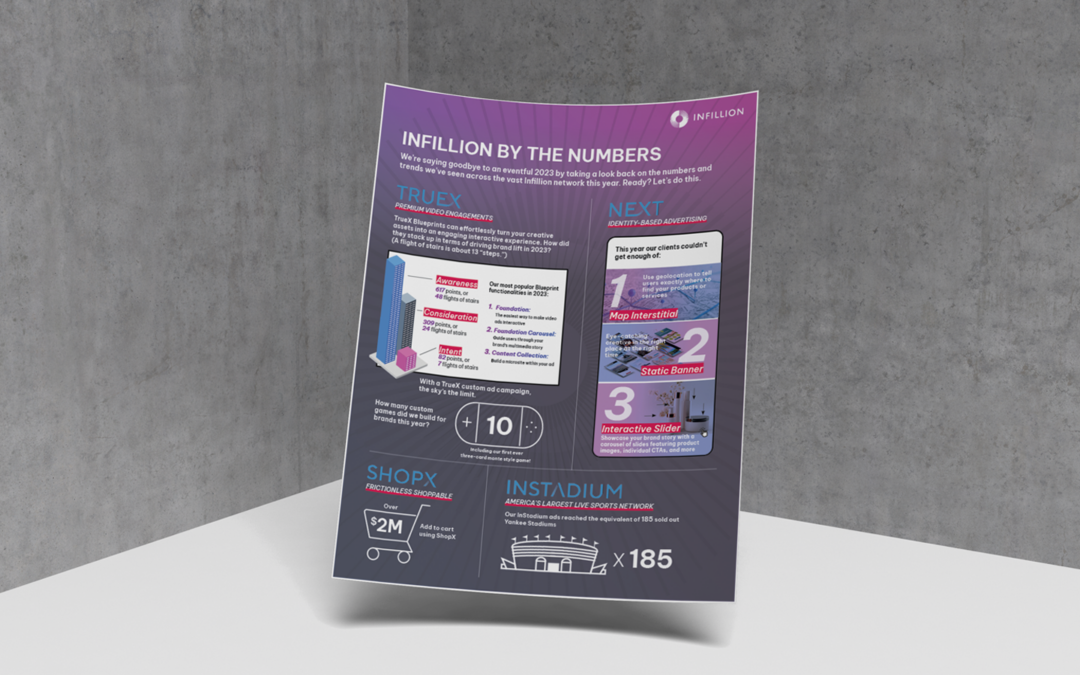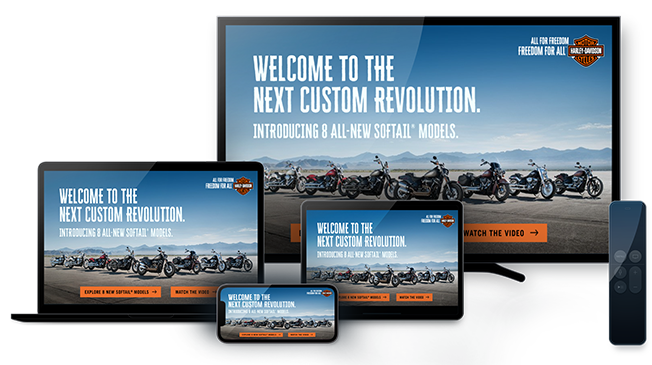At the Crossroads: Investing in Purpose-Driven or Minority-Owned Media

The need for more authentic and diverse storytelling emerged as one of the major themes at Cannes Lions and Infillion’s Inclusive Café in June. With global industry leaders in agreement, Laurel Rossi, CMO at Infillion, helped advance the conversation at one of Inclusive Café panels, asking how pledges to spend and invest more dollars with purpose-driven or minority-owned media can reach smaller and impactful publishers.
To address this topic and understand why the advertising and media industry is at an important juncture, she invited leaders in this space to not only consider the present moment, but to also share some of the actions they are taking to create authentic and diverse content that reaches and resonates with their audiences. Joining Rossi on the “Maximizing Impact through Purpose-Driven Advertising Investment” panel were: Damian Benders, General Manager at B Code Media, My Code; Dave Rosner, CMO at Audigent; Kerel Cooper, President of Advertising at Group Black; Mari Kim Novak, Trustee at Creative Spirit; Scott Kelliher, Head of Revenue at NewsBreak; and Susan Schiekofer, Chief Digital Investment Officer at GroupM.
“We’ve talked across the industry about purpose-driven marketing, where investments come from, where they go, where they should be. I know this panel is going to be about action,” says Rossi, who recently wrote a Fast Company article highlighting the need to “accommodate and protect workers with disabilities in systemic ways.”
Driving Increased Investment in the Multicultural Marketing Space
Damian Benders, General Manager at B Code Media, My Code, a multicultural, marketing and media platform focused on creating opportunities for driving increased investment in the multicultural marketing space, says, “Everyone involved in the space or in the process needs to be in the process of figuring out what it means for them. For My Code, we came into the space specifically to solve and address needs. There were opportunities for Hispanic, Black, Asian-Pacific Islander, and LGBTQ+ organizations, media companies, etc. We wanted to help them receive funds, support their businesses, and support their journalism… And we take that goal through our conversations with brands and agencies.”
“For us, the purpose originates with the people that are working in the company, people that are working at the brand, that are trying to develop that conversation. And we want to unearth what that is and give them an opportunity and a partnership to help that come to life. It takes a lot of work, but that’s the goal,” Benders adds.
Along with other companies featured on this panel, My Code was recently featured in an AdWeek article on how brands can lift up minority-owned business, adding that My Code leverages proprietary data and helps companies develop strategies, campaigns, and messaging that resonate with underserved audiences.
Dave Rosner, CMO of Audigent, as well as other panelists, emphasized the need for structure. “I think this conversation shows that we desperately need to get together and create some definitions, because once we have that structure, we can move together. And when we move together, we move much faster.” Rosner added, “Let’s move the money now that we have the pipes to do so.”
While Rosner says there will be challenges, Mari Kim Novak, Trustee at Creative Spirit, says driving awareness can drive change. “It’s a hard category, and you can’t do purpose-driven if you haven’t thought about it. [You have] to make conscious change in your investment, in your employment practices, your day-to-day [practices], the way that you think about any of these different underrepresented communities in the media,” Novak says.
How Do We Measure the Progress?
Over the past several years in directing investment toward purpose-driven or minority-owned businesses, Rossi asked what measurements are in place to gauge progress.
Novak, in addition to other panelists, called out GroupM, noting the company has forced change because of its high standards, requiring brands and others to “prove” themselves to work with GroupM. “Everybody is doing that on this stage because I think that’s a very, very honest way of saying how you’re seeing major change.”
Measurement is the first step to track progress, but Scott Kelliher, Head of Revenue NewsBreak, says he feels like “we’re only in early days in figuring out how to prove the efficacy of the media and the purpose. NewsBreak is a hyper-local news aggregator, whose mission is providing news across the U.S., particularly to local news deserts. “So as small publishers and small newspapers across the U.S. go out of business, our drive is to figure out how to get local communities the information they need in a quick and easy manner,” Kelliher says.
Even for NewsBreak, as Kelliher explains, the translation from “oh, that’s cool, that’s different”, when industry people hear about the company’s purpose, needs to backstop words with investments, and that goes for any company with a purpose-driven model looking to reach and serve diverse audiences.
Kerel Cooper, President of Advertising at Group Black, adds that besides moving beyond mere words, as Kelliher suggests, the industry needed to monitor the flow of investment in an“aggressive way.” He adds, “I don’t believe there’s a real universal approach yet, but each of our companies are doing their part to try to do that piece.”
Susan Schiekofer, Chief Digital Investment Officer at GroupM, suggests focusing on certain areas, such as Black-owned media. “So, we did look in terms of our spend total versus the industry (benchmarks). While ours was better than the industry at large, it still was small. It’s a couple of years later, and I would say we’ve had good improvement, but not yet enough.”
Regarding the news, Schiekofer adds, compared to where [ad budgets] were 20 years ago, averaging between 16% to 20% of overall budgets, it is dramatically down since then. The adverse political environment hasn’t helped, so many clients just want to stay away from controversial issues. You don’t have to be on the hard news page or the political page, but you know there is sports and entertainment. It’s gotten somewhat better, but we have a long way to go.”
The Shift to Programmatic Buying
Is the shift to programmatic buying making it difficult for smaller publishers to gain visibility with brands that can meaningfully support content? Rossi asked the panel to weigh in on the shift. Here are some of the responses:
” We recently did a very small test with DoubleVerify where we took ten of our clients that were running across group Black sites. We changed the blocking from the domain level to the page level, and it opened up 15% more inventory for that marketer to take advantage of, while sticking to what they deemed as brand safe. There are ways to do this and activate it. We have to get to the root of the issue, and I think brand safety and blocking at the keyword level, site-page level is still a big issue.”
– Kerel Cooper, President of Advertising at Group Black
“While we were deciding to focus very much on our DEI initiative a couple of years ago, we did an audit of all of our accounts and the exclusion keyword list. And what happens is that, let’s say it’s a small, happy campaign, you might have a ton of news keywords or underrepresented voices, keywords that were blocked for one campaign, but then they become part of an overall client list. We actually went through every single word and then removed words on the exclusion list to do the same exact thing. It’s something that all teams at the agencies or the clients need to do, like I would say, not just once a year or every couple of years.”
– Susan Schiekofer, Chief Digital Investment Officer @ GroupM
“I think that one of the dangers that we have in being in digital and programmatic is that we think the system is automatically going to be smart. And it comes down to the fundamentals of the building that were here long before the Internet. We’ve got to be thoughtful. If you’re launching a brand campaign, you have to look at the specifics of that brand and go in and change it. And that requires all respect to ChatGPT, a person who really is passionate and knows that brand.”
– Dave Rosner, CMO at Audigent
Underrepresented Groups That Are Largely Invisible
Some of the discussion revolved around underrepresented groups and visibility in the industry, because when people or consumers have a connection in terms of what is reflected in media or advertising, a brand can inspire people, and you take them along on the journey, creating loyalty.
Part of the solution, Novak explains, is hiring people with intellectual disabilities because of the needed and different perspective they bring to the creative process. “And that’s true of any underrepresented community. The only way we get the greatest ideas is with a great level of creativity, and that creativity only comes by having a diverse amount of creative thinking and experiences at the table.”
In wrapping up the panel discussion, Novak challenged the listeners: “I don’t think this is a conversation you should be having later. Let’s bring it into this generation, so that in five years and in ten years, this is in their DNA.”
Special thanks to our participants:
Moderator:
- Laurel Rossi, CMO @ Infillion
Panelists:
- Damian Benders, General Manager at B Code Media, My Code
- Dave Rosner, CMO at Audigent
- Kerel Cooper, President of Advertising at Group Black
- Mari Kim Novak, Trustee at Creative Spirit
- Scott Kelliher, Head of Revenue at NewsBreak
- Susan Schiekofer, Chief Digital Investment Officer at GroupM
Subscribe to our blog:
Related Posts:

Infillion by the Numbers: See the Year’s Creative Stats
At Infillion, our tech and creative teams build for desktop, mobile, connected TV, and even sports stadiums. That’s a lot of platforms – and a lot of different creative strategies. What were some of our creative milestones in 2023? From brand lift to 3-card monte,...

2024’s Streaming TV Trends: What Our Industry Can Expect in the Year Ahead
Streaming TV business model changes, shoppable ads, generative AI, and a stronger push for collaboration will reshape next year’s advertising landscape. Here’s how. Ad spending roared back in the latter half of this year, indicating that there will be a healthy...

How to Master Interactive Ad Creative: Content Collections
Welcome to our Interactive Storytelling series. Here, we’ll share our favorite strategies on how to turn static stories into interactive ad narratives. Missed the last one on quizzes? Read it here. For brands that need to advertise a larger suite of products...
Let's Connect
We can help you create the personalized ad experiences viewers expect.

